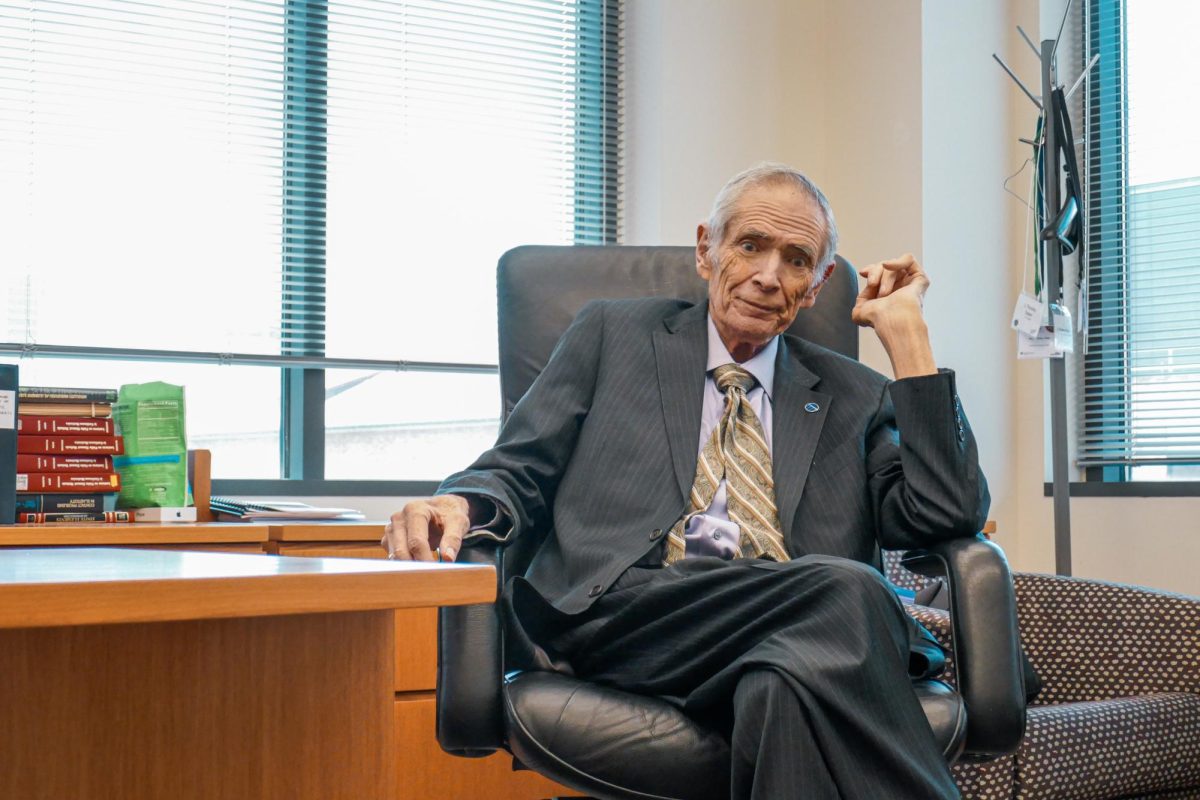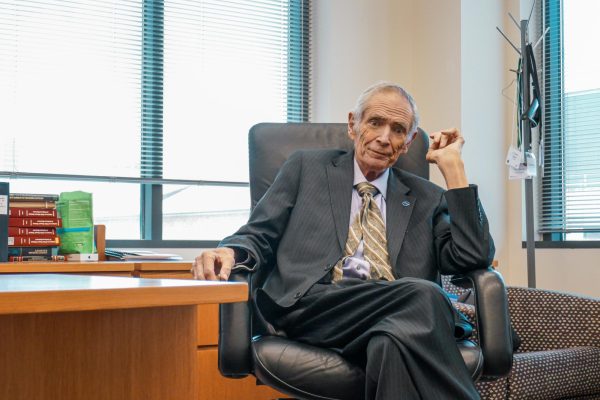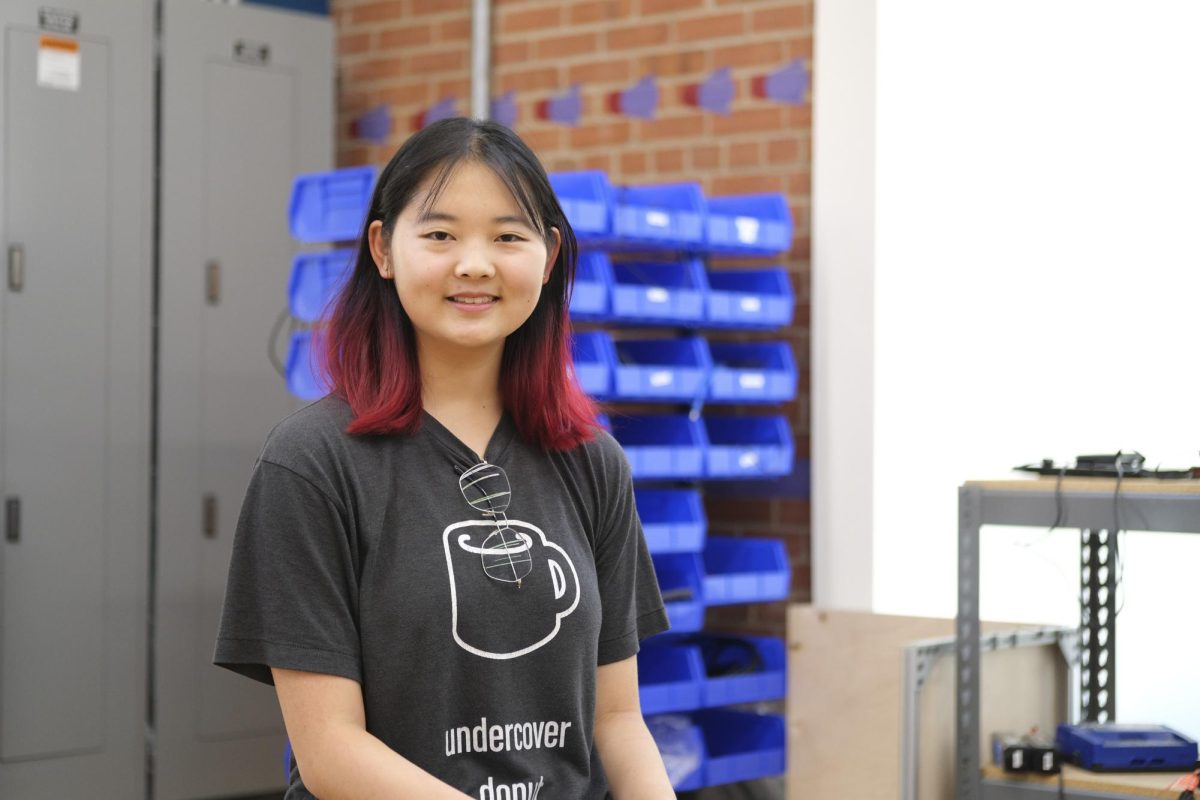Unbeknownst to J. Tinsley Oden, his passion for computational science as a graduate student at Oklahoma State would lay the groundwork for a world-renowned institute at UT. He cranked numerical algorithms on his desk calculator and taught himself to code with primitive languages like Fortran. In 1962, Oden left Oklahoma State with a new scientific interest that would unlock limitless possibilities.
Oden taught at the University of Alabama in Huntsville for nine years, eventually serving as the chairman of its engineering mechanics department. While there, he published a book in 1971 called “Finite Elements of Nonlinear Continua.” In Oden’s words, the book “made a big splash” and would eventually be translated into Chinese, Russian and Japanese.
“(UT) visited me in around 1971, and they begged me to come to Texas,” Oden said. “I was ready to get out of Alabama, so we moved here in 1972.”
After becoming a visiting professor in 1972, Oden joined the University’s faculty the next year as an aerospace engineering professor.
On the precipice of his 50th anniversary as a UT professor, Oden said his title developed into a “mouthful.” He is now a professor of aerospace engineering, mathematics, computer science and engineering mechanics.
As Oden’s credentials grew, he nurtured the growth of a computational science institute that would become one of the best in the world. According to the institute’s website, what is now the Oden Institute for Computational Engineering and Sciences began in 1973 as the Texas Institute of Computational Mechanics (TICOM). Oden led the way as the institute’s director.
Oden’s book continued circulating through the scientific community as he built TICOM. Oden said the book made its way to Fort Worth businessman Peter O’Donnell and his foundation, which aims to advance science and technology in Texas.
“In the early 1990s, (O’Donnell) proposed (renaming) the institute,” Oden said. “He proposed changing it to Texas Institute of Computational and Applied Mathematics (TICAM).”
Oden said O’Donnell contributed between $15-20 million to the institute, and in 1993, the institute changed its name on O’Donnell’s recommendation.
“Pretty soon, (we) ran out of room,” Oden said. “(We) went from a building at Pickle (Research Campus) to the Biomedical Engineering Building on Dean Keeton. … That was the old university hospital. I had an office that was basically a hospital room — I had a private bath.”
With a new name, impressive growth followed. The institute has changed its name twice since 1993, ushering in significant improvements to research and welcoming the top minds in computational science.
The institute outgrew its space again, and Oden said O’Donnell offered to create an institute-specific building. After facing pushback from the University Regents, he said O’Donnell built the building “for less than half” of the anticipated $210 million budget. The Peter O’Donnell Jr. Building, which the institute now calls home, completed construction in 2000. With a new and larger building, Oden said O’Donnell was ready for the institute to go to the “next level.”
“The next level was to greatly expand the program and change the name from TICAM to ICES — the Institute for Computational Engineering & Sciences,” Oden said. “We also recruited endowments from the W.A. ‘Tex’ Moncrief family in Fort Worth. (Moncrief) put in $18 million, and Peter matched it.”
Awards line the hallway to Oden’s office, and the institute’s website describes his leadership as “visionary.” But Oden said he prefers to credit the donors and University presidents who supported the institute.
In 2018, Oden stepped down as the director of ICES, according to an article written by Joanne Foote, the institute’s strategic communication specialist. The article said the UT System Board of Regents voted to rename the institute after its founder a year later.
Foote said the institute will host a full-day symposium on Sep. 21 to celebrate the 50th anniversary of both Oden’s academic career at UT and the institute’s creation. She said the event will include keynote speeches, panels and a fireside chat. As Foote listed potential speakers for the event, Oden seemed excited about the “polished” and “highly educated” lineup.
Despite plans for a phased retirement starting this fall, Oden said he continues to work on research at the institute. His latest project aims to model tumor growth on a sub-cellular level.
“(UT) is a perfect place for me,” Oden said. “The departments had very good administrators by and large. There were some who were absolutely terrible, and I’ll not mention them. But mostly, the University was well run. They knew its mission.”
















